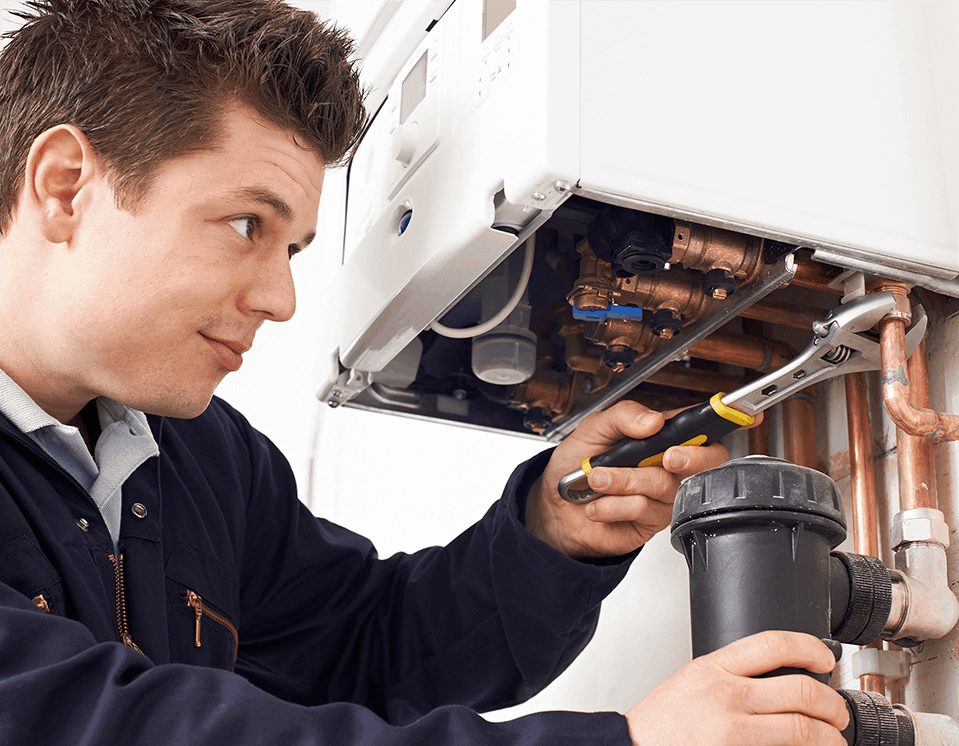
The commercial boiler in a work facility is usually a solid and reliable unit that is really good at the provision of warmth for the workplace. You will find in the article below a high-level guide that will enable you to get a feeling for the basics of a commercial boiler system. After reading this article you will be informed on how they provide warmth into workplaces plus how to keep them in a good condition.
Commercial Boiler Basics
Commercial Boilers are of a pressurized system type of boiler. It burns a flammable fuel source or makes use of electricity in order to generate hot water and provided it around your workspace. There is however more than one type, some make use of water that is turned to steam, whilst others use the hot water its self.
Within the boiler either electrical coils or burners create heat that is put into the water by way of a heat exchanger. This process will generate steam or hot water. Which of these is created will depend on the type of commercial boiler. Either the steam or the hot water will then be sent around the facility via a pipe network. The steam or hot water will then enter the items in then facility such as radiators that cause heat to be dispearsed. This will enable the work area to be maintained at a the heat level required for optimal operation of your staff.
The most commonly used fuel for a commercial boiler is natural gas. Please be aware though that there are other boiler types on the market. They use fuels such as electricity (by us of electrical resistance coils) or burning of oil.
The parts that make up commercial boilers
A commercial boiler will normally have the following components:
- A Burner: This is the bit of the commercial boiler that provides the flame that causes the water to be heated. The burner is the component that controls the mixture of oxygen and fuel to ensure an efficient and reliable flame.
- A combustion chamber: This is the part in the boiler where the fuel is burned in order to warm the water. The combustion chamber has the burners in it and provides a secure and safe place for the burning of the fuel. You will find that the combustion chamber is usually made out of steel, cast iron or another strong metal.
- A Heat exchanger: This is the part of the system that causes heat transfer from the burners into the water within the boiler. You will find within commercial boilers the heat exchangers are usually constructed out of copper, bundles of steel tubes or cast iron.
- An exhaust stack: You may recognise this by the alternate name of a Flue. The purpose of this part of the system is to efficiently transport exhaust gases to outside the workspace. It is imperative that this item is properly constructed as these gases contain the likes of carbon monoxide and are poisonous.
- The Controls: This is the part of the system that will allow you to set the following:
- Internal pressure
- Air and fuel supply mixture
- Ignition
- Water temperature
- The rate of fuel usage
- The mixture of oxygen and fuel
- How often the boiler comes on
- Safety controls:
- Makes sure the internal pressure cannot go higher than is safe
- Makes it so the system is able to operate correctly
- Makes sure the water temperature is maintained inside a safe range
Safety and maintenance of your commercial boiler
It is important to remember that a commercial boiler contains either extremely hot water or steam that is under high pressure. It is therefore important to make sure for the boiler that:
- All the safety systems are maintained so they will work when required
- It is Working properly
- It is Clean
As you will no doubt understand if you were to have a leak it may cause significant injuries to staff or damage to the workspace. It is also possible for a boiler to explode with potentially terrible results. It is therefore necessary to ensure your commercial boiler receives correctly scheduled maintenance from a professional engineer. This maintenance will not only help to ensure your commercial boiler runs safely but also efficiently.
